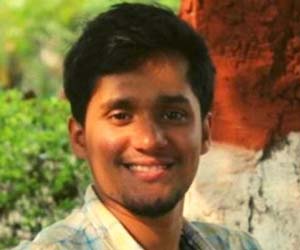On 9th August 2023, Vivekananda International Foundation (VIF) organised a round table discussion on ‘Hindutva and Secularism’ by Prof. Arvind Sharma. Prof. Sharma, formerly of the Indian Administrative Service (IAS), is the Birks Professor of Comparative Religion in the School of Religious Studies at McGill University in Montreal, Canada. He has also taught at various universities in the United States (Northeastern, Boston, Temple, Harvard), Australia (Queensland, Sydney), and India (Nalanda). He has published extensively in the fields of Indian religions and comparative religion. He is the General Editor of the Encyclopedia of Indian Religions (Dordrecht: Springer, 2017-). Prof. Sharma was also instrumental in adopting the Universal Declaration of Human Rights by the World’s Religions, at a global conference held in Montreal, in 2016.
This lecture was the fourth among the lectures and discussions VIF had organised under the series called ‘Hindutva for our times’. Around a hundred years ago, in 1923, V.D Savarkar wrote a seminal work titled Hindutva: Who is a Hindu?. This book gave the classical formulation for the concept of Hindutva. It would be timely to explore the underlying feature of Hindutva ideology. In that direction, the fourth discussion of the series titled, “Hindutva and History,” examined how the political idea of Hindutva participates in the historical discourses related to India.
Apart from the keynote speaker, the discussion also had Smt. Manoshi Sinha, Author of ‘Saffron Swords’, and Dr. Ankur Kakkar, Assistant Professor at Indus University, Ahmedabad, in the panel. Prof. Sharma began by asking the audience, “What do you regard as the greatest failure of Hinduism?” He highlighted that many Hindu scholars in the past, like S. Radhakrishnan, have mentioned about the political failure of Hinduism. This is to say, the lack of having a political force is being said as the failure of Hinduism in contemporary times. He raised the issue of temples being under State control and mentioned that the temple money could be used for Hindu causes, to repair historical injustices that have happened in India, if used effectively. He mentioned how temples in the past have served as a nodal point for economic development, political development, education, and cultural progress of the Hindu community. To regain such functions of the temples, they have to be liberated from State control.
Author Manoshi Sinha, as a panellist, spoke about the need to mainstream the history of Hinduism, bringing historical accounts of many Indian kingdoms to the forefront. Dr. Ankur Kakkar spoke about how Hindutva tends to see history differently from ‘professional historians’ who see periods of Hindu history in fragments rather than as a whole. He also highlighted how temples functioned as centres of education in India. He briefed about what education meant in pre-colonial India and how it was inclusive in its own terms. The discussion was concluded after an engaging Q&A session.






Post new comment